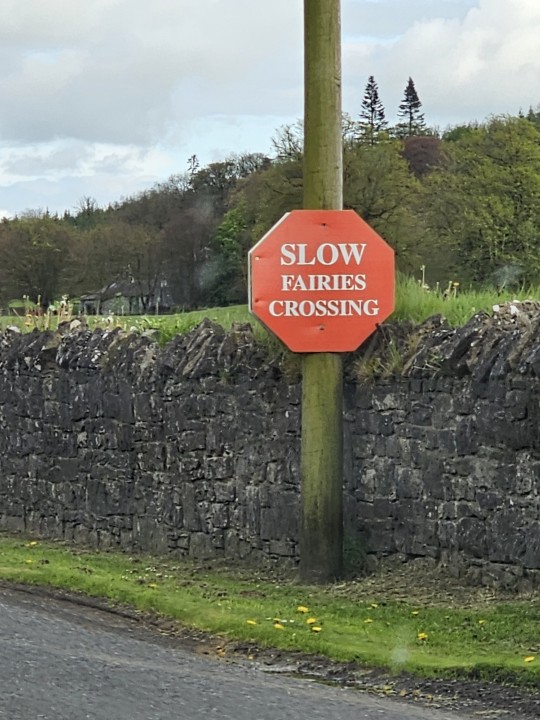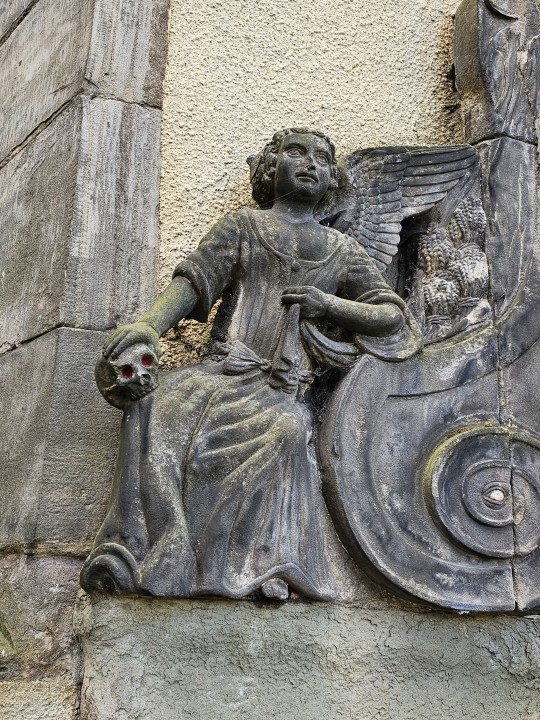Text
"Béarlachas"
I've been meaning to write this post for some time now. As a person from the Galltacht (English-speaking Ireland) living and working in the Gaeltacht (Irish-language Ireland), and operating most of my life through the medium of Irish, I can honestly say that English-language Ireland, Second Language speakers of Irish and Learners of Irish tend to have a really skewered understanding of a) what Béarlachas is, b) the different forms it takes and c) what effects/damage/meaning each of its forms holds.
Contents of this post:
•Perceptions of Béarlachas
•Loanwords Vs Béarlachas
•Different Languages, Different Sounds
•Language Purity Vs Language Planning
•Conclusion
Perceptions of "Béarlachas"
Outside of the Gaeltacht, most people's understanding of "Béarlachas", or "Anglicisation" in Irish (which I am deliberately putting between inverted commas!), is the use of so-called "English-language words" in Irish. The usual list people like to list off include:
• Fón
• Teilifís
• Giotár
• Raideo
• Zú* (see Language Purity Vs Language Planning below)
• Carr*
*The ironic thing about the last item being that 'carr' (the word for a personal vehicle) is older than the English-language word 'Car' 🚗.
Second language learners with a bit more exposure to the language deride native speakers, particularly speakers from Conamara, for "using English words and adding '~áil' at the end to make a verb". Several examples being:
• Gúgláil (Google-áil)
• Sioftáil (Shift-áil)
• Sortáil (Sort-áil)
• Péinteáil (Paint-áil)
• Vótáil (Vote-áil)
• Focáilte (F*ck-áilte)
• Supósáilte (Suppose-áilte)
(⚠️NB: it is HIGHLY SIGNIFICANT that I spelt these words in these specific ways in Irish - to be explained below!⚠️)
Other so-called "English language words" in Irish include:
• Veain • Seit • Onóir • Ospidéal • Aláram • Cóta • Plaisteach • Leictreach, 7rl, 7rl...
And what about: "Halla" or "Hata" ??
Loanwords Vs Béarlachas
Before I explain where I'm going with this, I am going to introduce some words that have their origins in other languages, like:
"Seomra" from the Middle French "chambre".
"Séipéal" from the Middle French "chappelle".
"Eaglais" from the Greek "ekklesiastes".
"Pluid" from the Scots "plaide".
"Píopa" from Vulgar Latin "pipa".
"Corcra" from Latin "Purpura" (from before Irish had the sound /p/!)
"Cnaipe" from the Old Norse "knappr".
"Bád" from Anglo-Saxon "bāt".
ALL of these words, like the ones above, came into Irish via the most natural means a language acquires new words: language contact.
The reason WHY the word gets adopted is usually -and this is very important - the word is for something that the culture of the language Borrowed From already has, which is introduced to the language Borrowed Into.
For clarification, what I am trying to say is that languages NATURALLY oppose cultural appropriation by crediting the culture they got a word from by using their word for it...
I.E. "Constructing" a new "pure" word for an item that has come from another culture, is, in effect, a form of cultural appropriation - which is why institutions such as Alliance Française and Íslensk málstöð are at best puritanical, and at worst xenophobic*.
*There is nuance here - there is a difference between institutional efforts to keep a language "pure" (re: those such right-wing English/British and American opinionists who claim that the English language itself is endangered 🙄), and language planning (which also falls under the remit of Íslensk málstöð).
Furthermore, there is also such thing as "dynamic borrowing". This is where technically a language has adopted a word from another language, but has changed its meaning/adapted it to its own need. Let us take two Irish language words for example: "Iarnród" and "Smúdáil"
Iarnród is made up by two words taken from the English language: Iarann, from English language "iron" and Ród, from English-language "road".
Together, these two words mean the English-language term "Railway" - but English has never had the term "Iron Road" to refer to this object.
Similarly, Smúdáil comes from the English-language word "smooth". Only adapted to Irish, and adding the Irish-language verb suffix creates a word which means "to iron (clothing)". 😱
Different Languages, Different Sounds
Every single language on this planet has its own sound system, or "phonology". It is VERY rare for a new sound to be introduced into a different language, and some languages are MUCH more sensitive to what speakers of another language would consider a "subtle" difference, or not a difference at all.
Now...
IRISH HAS DOUBLE THE AMOUNT OF SOUNDS AS THE ENGLISH LANGUAGE!!!!!!!
(^roughly ~ish) I am making this simplistic statement to DRIVE home the fact that what English-language speakers and Learners of Irish hear as "the same as the English", Irish speakers hear a SIGNIFICANT phonetic difference.
All consonants in Irish [B, bh, c, ch, d, dh, f, fh, g, gh, h, l, ll, m, mh, n, nn, p, ph, r, rr, s, sh, t, th] - and YES, séimhiú-ed consonants and double consonants count as separate consonants - EACH have at least TWO distinct sounds. Ever heard of that old rhyme "Caol le caol, leathan le leathan"? Well, the reason why it exists ISN'T to be a spelling tip - it's to show how to pronounce each consonant in a word - which of the two distinct sounds to say.
What I mean to say by this is that, when we adopt a word into Irish, we aren't just "grabbing the word from English and hopping a few fadas on it"; we are SPECIFICALLY adapting the word to the Irish language phonetic system.
I.E. when an Irish language speaker is saying the word "frid" THEY ARE NOT USING THE ENGLISH LANGUAGE WORD "fridge" !!!
The sounds used in the English-language word belong to the English language, and the sounds used in the Irish-language word belong to the Irish language.
As a linguist I get very passionate about this distinction - the AMOUNT of times I have come across a self-important Irish language "learner" from the East of the country come to a Gaeltacht and tell native speakers that they are not using the "official" or "correct" version of a word in Irish just GRATES me to no end. PARTICULARILY as these so-called "learners" cannot hear, or typically have made NO effort to understand phonetic differences between the two languages. (Though honestly, on that point, I cannot wholely blame them - it is a fault on Irish language education as a whole that the differences in sound are hardly, if ever, mentioned, let alone taught!)
Language Purity Vs Language Planning
Moving on, as I mentioned earlier, it is very rare for a sound to be adapted into a new language. As many Irish language speakers and learners know, there is no /z/ sound in (most of the dialects of) Irish.
And yet, somehow, the official, modern translation given for the Irish language for "Zoo" is ...
Zú
Whenever I think on this given translation, I am always reminded of a good friend of mine, a lady from Carna, who used to always talk about "Súm" meetings she used to go on to talk with friends and family during COVID.
This woman only speaks English as a second language, having only ever learnt it at school and only ever used it in professional environments. She does not have the sound /z/, and as such, pronounces words that HAVE a "z" in them as /s/ sounds, when speaking in Irish OR in English.
As such, I often wonder how An Coiste Téarmaíochta can be so diligent in creating and promoting "Gaelic" words for new things, such as "cuisneoir" instead of "frid"; "guthán" instead of "fón" (which is actually pronounced "pón" in Conamara, as that suits the sound system of that dialect better); or "treochtú" instead of "treindeáil" ... And then turn around and introduce sound and sound combinations such as /z/ in "Zú" and /tv/ and /sv/ in "Tvuít" and "Svaedhpáil" 🤢
It's such this weird combo of being at the same time puritanical with regard to certain words, dismissive in regards to vernacular communities, and ignorant with regards to basic linguistic features of the language.
(Especially when, i mbéal an phobail, there are already such perfectly acceptable terms for these kinda words, like Gairdín na nAinmhithe for "Zú; Tuitéar and Tuít for "twitter" and "tweet"; and Faidhpeáil for "Svaedhpáil".)
Conclusion
This really prescriptivist approach by Irish language institutions needs to end. Not only is it not addressing or engaging with the Irish language as it is spoken by vernacular communities, it is creating this really twisted dynamic between second-language Irish speakers who apparently "know better" than first-language and native speakers of Irish.
This is what "Béarlachas" is. Not the natural adaption of words from a language with which Irish in the present day has most contact with. Not the dynamic inventions of native speakers, and even Second-language-as-vernacular speakers, utilising all the linguistic features available to them, whether that be their own dialects of Irish, English, or whatever OTHER languages/dialects are available to them.
"Béarlachas" is the brute enforcement of English language mentalities and an obsession with "purity" onto Irish, a language that has FOREVER adopted and integrated words, features and people into itself.
Gaeilge, like Éire of old, like the Ireland I want to be part of today, is open, inclusive, non-judgemental - knowing where it is coming from, and knowing that its community is its strength and key to how it has and will survive!
326 notes
·
View notes
Text
na rudaí is tábhachtaí i ngaeilge
clapsholas: twilight
gealach úr: new moon
urú: eclipse
éirí na gréine: breaking dawn
grian mheán oíche: midnight sun
177 notes
·
View notes
Text
just found a treasure trove of irish language resources you can't even imagine
4K notes
·
View notes
Text
PSA its Bealtaine not beltane. stop anglicizing irish words idc if its easier for you to say. you are participating in the erasure of a language that people had beaten out of them.
#beltane#if i see another fucking post using beltane over Bealtaine im going to rip my teeth out#its bealtaine fyi#please stop ruining irish words im begging#anglicization is a fucking plague#bealtaine#gaeilge#witchblr
3 notes
·
View notes
Text
I know I already made a post about this. But ICWA is LITERALLY being challenged by a white couple that wants to adopt indigenous children to erase their culture and Christianize them. The tribe, whom has a say in who can take their children, is like "Nah, we don't want our youth Christianized like you tride last time"
And the lawyer that's helping the white couple try to overturn ICWA (so that they can erase the cultures of indigenous children) is doing it pro-bono (which means he's not charging the couple anything).
AND that lawyer is a big time lawyer whose clients are usually oil and gas industries. He's literally fighting for indigenous children to be ripped from their tribes and culture so there's less indigenous people to protest big oil destroying their sacred land.
-fae
50K notes
·
View notes
Text
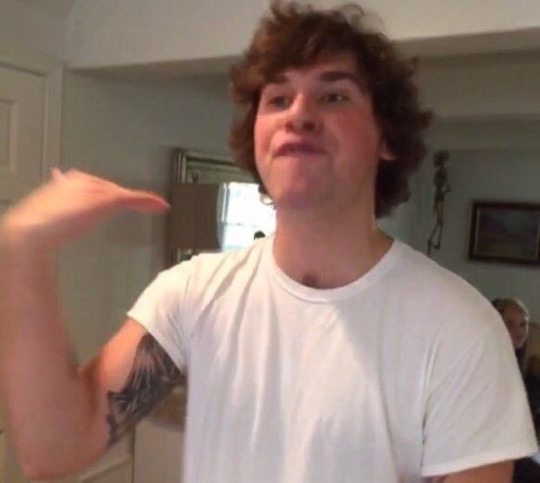
céard sa FOC atá ar siúl, kyle?
no, céard a DÚIRT TÚ?
céard sa FOC, a mhac!
DÚN DO FOCAIN CHLAB, KYLE!
105 notes
·
View notes
Text
a brief list of favourite words - spring and summer edition (irish)
bachlóg - bud
bláthanna - flowers
múirín gréine - sun shower
griandóite - sun-baked
cois farraige - seaside
bláthaigh - to bloom
ceol na n-éan - bird-song
uan - lamb
caora - berries
816 notes
·
View notes
Text
Glaze is out!
Tired of having your artwork used for AI training but find watermarks dismaying and ineffective?
Well check this out! Software that makes your Art look messed up to training AIs and unusable in a data set but nearly unchanged to human eyes.
I just learned about this. It's in Beta. Please read all the information before using.
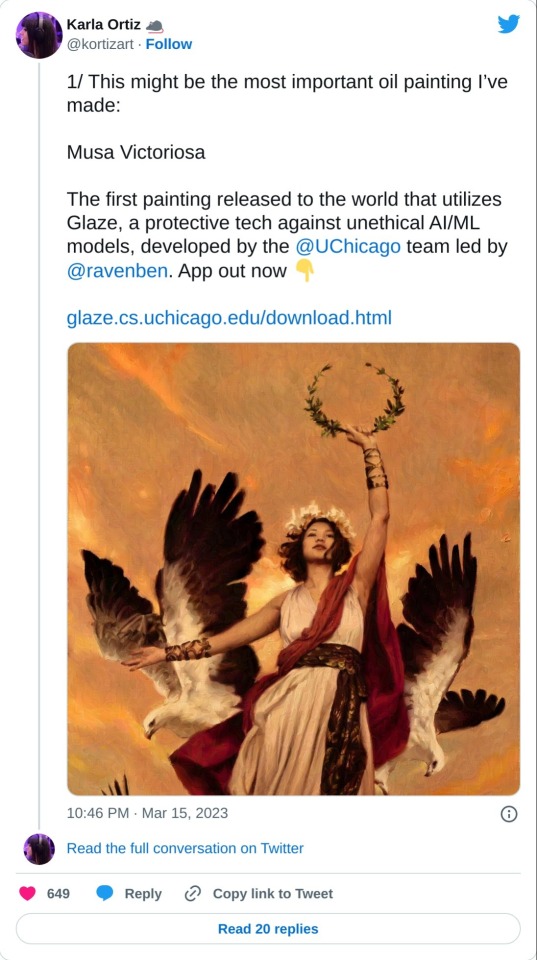
164K notes
·
View notes
Text
hellfire club
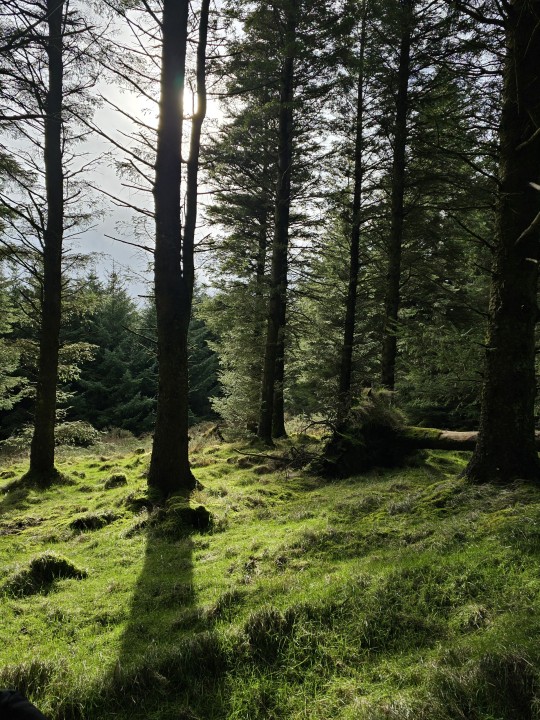

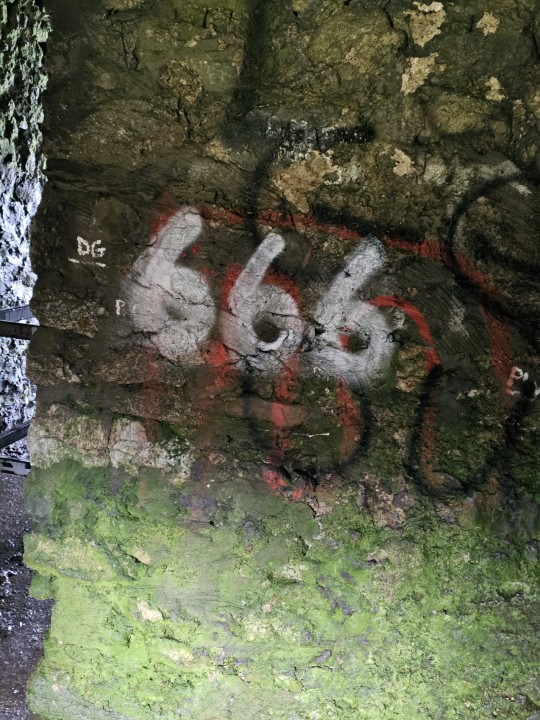
0 notes
Text
lá 'le pádraig sona dhaoibh a chairde is a bhlorbos!!!!!!!!!!!!!!!!!!!!!!!!!!!!!!!!!!!!!!!!!!!!!!!!!!!!!!!!!!!!!!!!!!!!!!!!!!!!!!!!!!!!!!!!!!!!!!!!!!!!!!!!!!!!!!!!!!!!!!!!!!!
48 notes
·
View notes
Text
path to nowhere
4 notes
·
View notes
Note
Haigh Éabann Dorch’adas Gealtachas Bran Slí is ainm dom agus tá gruaig fhada dhubh éabann orm (sin é an chaoi a bhfuair mé m’ainm) le stríoca corcra is foircinn dearga a théann chomh fada le lár mo dhroma agus súile gorm siochta cosúil le gol gléghlan agus insíonn a lán daoine dom go bhfuil cuma Katie McGrath orm (NÚ: mura bhfuil a fhios agat cé hí féin anyways amach as m’amharc leat!)
Níl gaol agam le Gerard Way ach ba bhreá liom go mbeadh mar is focain staic amach is amach é. Is vaimpír mé ach tá m'fhiacla díreach agus bán. Tá craiceann an-bhán agam. Is cailleach mé freisin, agus téim go scoil draíochta darbh ainm Hogwarts i Sasana ina bhfuil mé sa seachtú blian (Tá mé seacht déag).
90 notes
·
View notes

